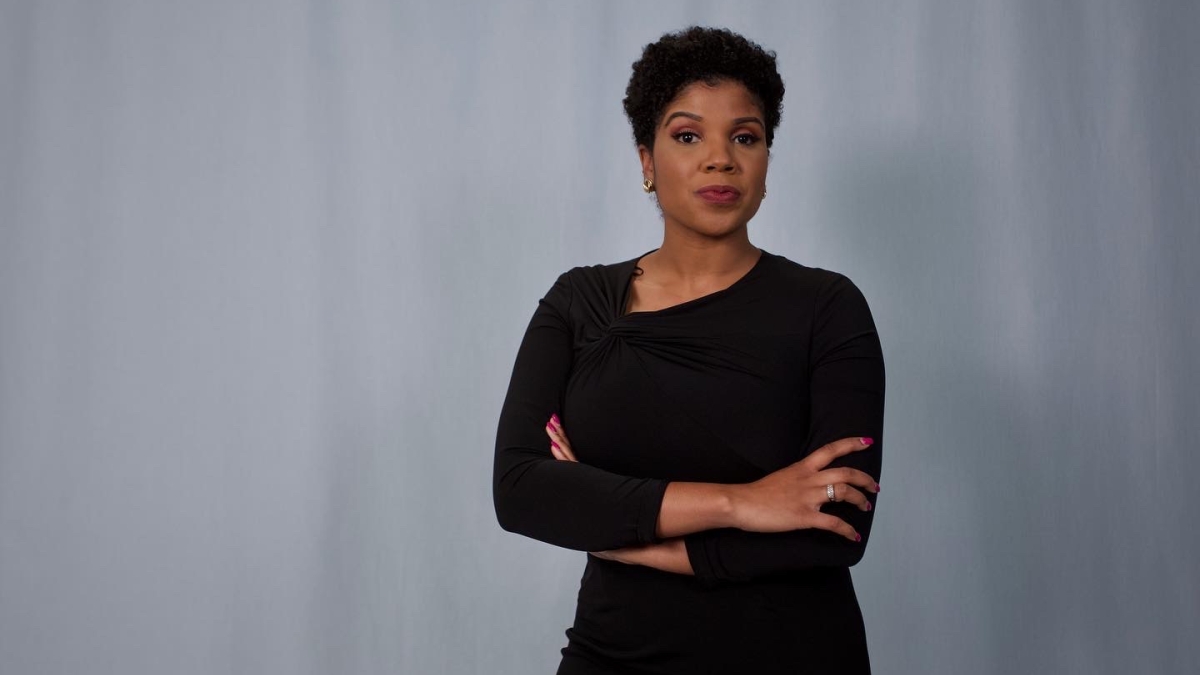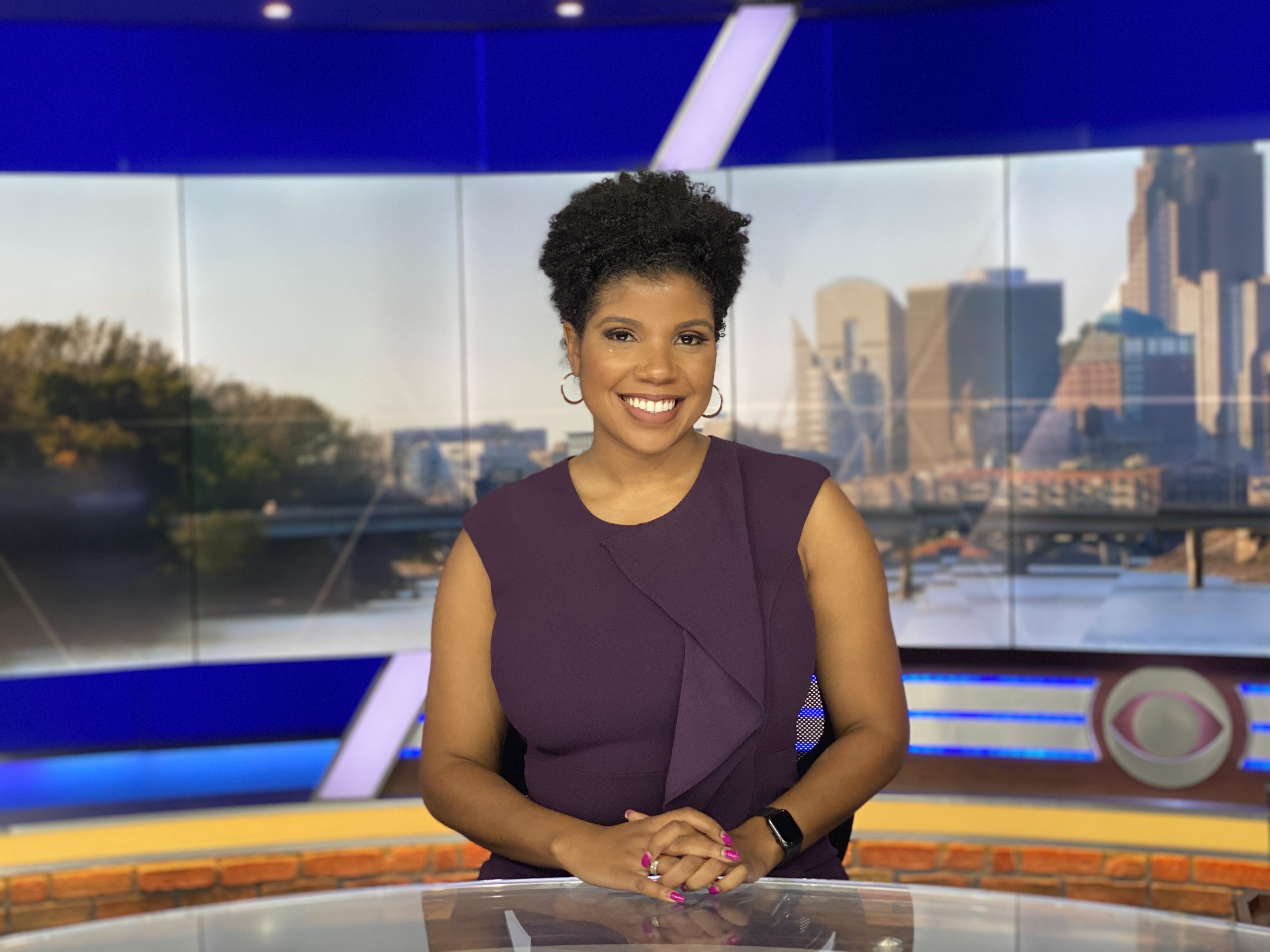ASU grad and TV anchor joins ASU Law master’s program to help make a difference in social justice

Rheya Spigner, a 2013 graduate of the Walter Cronkite School of Journalism at Arizona State University and Master of Legal Studies student at Sandra Day O’Connor College of Law.
Taking on the solo weeknight anchor role at KCCI in Des Moines, Iowa, wasn’t just another step in Rheya Spigner’s career, it was an important opportunity for her to make a difference in her community. And with her acceptance into the online Master of Legal Studies (MLS) degree program at the Sandra Day O’Connor College of Law, Spigner is looking forward to a future of helping with social justice reform.
“I wanted to take on a role that would challenge me, but also help me move into my purpose and help with my community," said Spigner, a 2013 graduate of the Walter Cronkite School of Journalism and Mass Communication at Arizona State University and an ASU Law MLS student this fall.
ASU Law recently caught up with Spigner, a Los Angeles native who started at the CBS-affiliated television station in 2016, to learn more about her future plans.
Question: Why did you want to join the MLS program at the Sandra Day O’Connor College of Law?
Answer: When I graduated from the Walter Cronkite School of Journalism, I already knew that ASU provides great accessibility to their professors and interesting ways to articulate their curriculum so all of that was already a sell. Having access to this online MLS degree program was great for me since I am a full-time anchor/reporter living in Iowa.
The MLS program directors are truly helpful, even before I was admitted. They assured me through the process and helped me map out the courses I would want to take within this program. Essentially, I am able to get the basis of this program which already offers a lot of the classes I was looking for and add on classes to my course map so that I can have a mini emphasis in social justice. I think that's why I am so excited — it's everything I want to learn. Additionally, they helped point me in the right direction for financial help, which truly made a difference.
Q: What will your studies be focusing on?
A: I will be focusing on understanding our legal system, which is pretty much the basis of the program. I'll also be taking courses to understand the history of policing and dichotomy in our society. Another course will discuss: "Theoretical perspectives and research on the overrepresentation of racial minorities as victims, offenders, and defendants in the criminal justice system." When I saw that course, I got so excited. It seems like this all came together for what I feel is my purpose.
Q: What are you most excited about?
A: I'm most excited to finish. That might not sound the greatest but I'm really excited to get the tools I need to establish resources for my community and be a better resource in the newsroom.
Q: How will you use what you learn in your community?
“Overall, my goal is to make positive contributions to my community and make a difference. A lot of conversations need to happen to uplift brown and Black communities and inform white communities. This has been in my heart for a while but I think it's even more prevalent during these times.”
ASU Law MLS student Rheya Spigner at her KCCI anchor desk in Des Moines, Iowa.
A: The plan is to create workshops that will inform people in marginalized communities about their rights and how to access and ask for resources. I also think it's important to emphasize the magnitude of words and actions and how they can be unconsciously biased in workplaces and everyday life. The concept of these might change as I learn more and what impacts me through this program. Overall, my goal is to make positive contributions to my community and make a difference. A lot of conversations need to happen to uplift brown and Black communities and inform white communities. This has been in my heart for a while but I think it's even more prevalent during these times.
Q: What makes ASU special?
A: Once a Sun Devil, always a Sun Devil. But really, I've learned so much from real conversations with professors that have happened inside some of the classrooms. From the majority of my encounters, it feels like they want you to succeed and that's huge.
More Law, journalism and politics

A new twist on fantasy sports brought on by ASU ties
A new fantasy sports gaming app is taking traditional fantasy sports and mixing them with a strategic, territory-based twist.…

'Politics Beyond the Aisle' series to explore the stories of public officials
In an effort to build a stronger connection between students and political and civic leaders, Arizona State University’s School…

ASU committed to advancing free speech
A core pillar of democracy and our concept as a nation has always been freedom — that includes freedom of speech. But what does…


